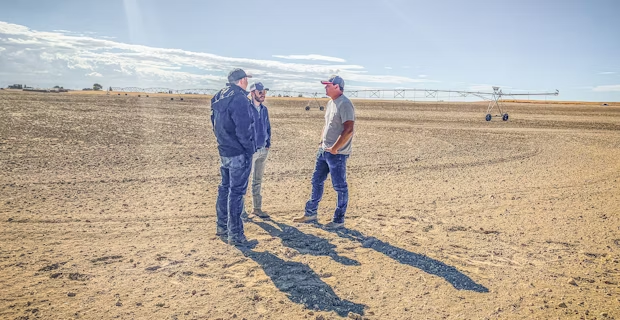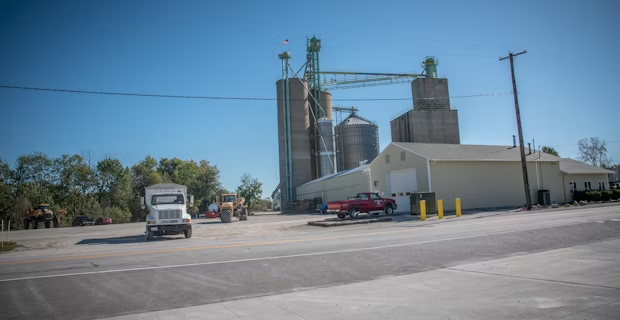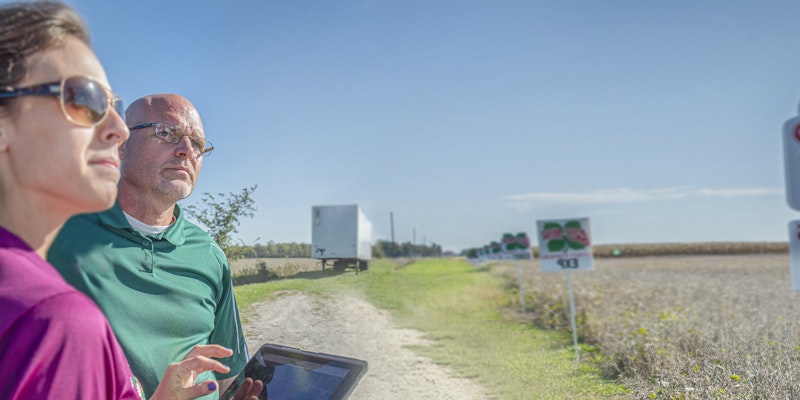As a Senior Account Executive for Agworld, talking with growers as well as ag retailers about data collection, data sharing, digital collaboration and information visualization is something I do every day. In the last 18 months however I have noticed some significant changes in both mindset and methodology among ag retailers and I’d like to share this as it’s an interesting topic for many in our industry, in my opinion. I should note when I refer to “data” this includes machinery data, agronomy data, but also all field-based jobs, records, and other expenses that contribute to field level ROI.
The role of Ag Retail is changing
For many years already, digital technology has been playing an increasingly important role in the relationship between ag retailers and their grower clients. From just performing agronomy tasks and selling inputs, ag retailers that want to stay ahead of the competition and or industry disruptors now feel the need to focus more on being their growers’ trusted advisor in regard to data collection and utilization of it for decisions.

In recent research by Farm Journal and The Sustainability Consortium, 71% of growers interviewed said that their ag advisor or consultant has never suggested increasing farm data collection or sharing. Furthermore, 62% of growers surveyed do not use any farm-level data software.
While not disputing these numbers, I do genuinely feel that Ag Retail’s mindset is changing and the majority do want to be that ‘trusted data advisor’ for their growers and recognize the importance for their growers to collect and share more data through adopting a collaborative software solution that starts with the grower.
Something I’m noticing is the difference in what ag retailers are looking for when aiming to adopt a software solution. Where historically ag retailers might have been looking to adopt software that would serve their organization and it’s back office function, such as accounting, agronomy, retail, stock and other modules, the focus has now definitely shifted to adopting software that puts the connection with grower clients first.
Surprisingly, there are still ag retailers out there that don’t create full crop production plans for their growers’ season together with them on a collaborative digital platform. So, these growers have no visibility into their advisor’s expectations throughout the season and the advisor / ag retailer have no visibility into what is happening in each field throughout the season and how each recommendation affects profitability. Although this lack of sharing critical data is still happening in 2020, trends suggest that the industry is changing rapidly.

Technological advancements to avoid disruption
Industries with an internal focus tend to get surprised by digital disruption (the taxi industry is a great example) whereas those industries that move ahead with technological advancements tend to survive and thrive by not giving potential disruptors a foothold. I’m glad to note on a daily basis that ag retail is very aware of the threat of disruption (by FBN for example) and is adopting relevant technology to counter this threat and continue to focus on service.
Again, instead of adopting software to just serve themselves, ag retailers are adopting software with their client base in mind. Agvend, Bushel and Agworld are three good examples of digital solutions that are very popular with ag retailers and that allow them to remain competitive and relevant to their grower customers. Digital platforms that enable true collaboration and data sharing where it makes sense for both parties are the key ingredients of all these digital solutions and it’s no miracle that growers love to form a ‘digital relationship’ with their ag retailers based on these types of solutions. I’ve also discovered that growers feel better about adopting an independent 3rd party software vs something that is proprietary to their retailer.
Collecting data is good, utilizing it is even better
If 71% of growers indeed haven’t been advised to collect and share more farm data, there is a disconnect in the chain of information somewhere. What I often see happening is that an advisor for example might see the benefit of a grower collecting ag data, but that they find it difficult to articulate the exact advantages and benefits of doing so to their growers. If the ‘why would I do that’ question doesn’t get a satisfactory answer, chances are that nothing will change on the farm.

In my opinion, data should always serve the grower first and foremost; growers shouldn’t have to waste their time collecting data on behalf of ‘big ag’ who will use it in a way that doesn’t serve the grower or for some other purpose that doesn’t serve them. Growers should collect data so they can visualise it and have it support them in their decision-making process. Decisions that are underpinned by data aid in profitability improvements and allow growers to manage their risk and reward ratio better than if they didn’t have said data.
One of my favourite tools for data visualization is Microsoft PowerBI; turning field-level farm data into easily digestible dashboards is such a powerful tool and one that any farmer can use, not just the technologically savvy. Both data collection and data visualization need to be made easy in order for them to become part of growers’ daily routine, which is why I am so passionate about the Agworld - Microsoft PowerBI integration.
Search product labels with Agworld DBX
A reliable source of plant protection chemical label data so that you can find the information you need for managing weeds, pests and diseases in a safe and effective way. Download product labels and SDSs
Powered by Greenbook
Summarizing the trends
Growers are looking for guidance and encouragement through deeper engagement from their trusted advisor when trying to achieve the goal of data driven decisions. If ag retailers and agronomists don’t adopt this mindset with their grower, someone else will - guaranteed. Growers want to collect more data that has purpose and meaning to their business sustainability, and they want to share this data with those that matter to them and they want to be able to utilize this data to improve the way they operate their business.
The way I see it, ag retailers will become even more focused on their growers when it comes to adopting digital tools into their operation; because they want to, and because they need to. The time of just focusing internally, and allowing the grower to do the same, are definitely gone; digital collaboration is key and this trend will only become stronger.
This article was first published on Croplife





